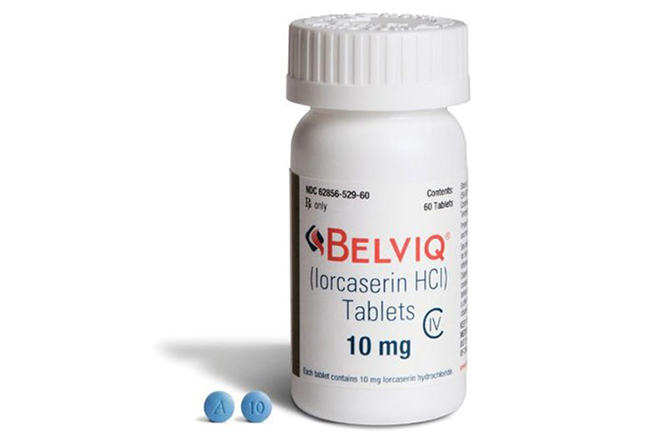Hudson Valley woman claims Belviq weight-loss drugmaker knew of cancer risk
A Hudson Valley woman claims that the New Jersey manufacturer of Belviq has known for years that the weight-loss drug potentially caused cancers.
Barbara Zottola of Warwick filed a class action complaint against Eisai Inc. last month in U.S. District Court in White Plains, accusing the drugmaker of pushing the product to market despite evidence that it was defective.
Eisai, based in Woodcliff Lake, New Jersey, voluntarily withdrew Belviq from the market in February at the behest of the U.S. Food and Drug Administration.
“By that point, unfortunately,” the complaint states, “the damage had already been done.”
 Belviq “has a positive benefit/risk profile,” Eisai spokeswoman Libby Holman stated in an email, “demonstrated by an extensive body of research undertaken by Eisai, its partners and independent medical research in 30 clinical trials involving 22,100 patients over the last 15 years.”
Belviq “has a positive benefit/risk profile,” Eisai spokeswoman Libby Holman stated in an email, “demonstrated by an extensive body of research undertaken by Eisai, its partners and independent medical research in 30 clinical trials involving 22,100 patients over the last 15 years.”
The lawsuit also names Arena Pharmaceuticals Inc., the San Diego company that developed and licensed lorcaserin, the active ingredient, and CVS Health Co., the pharmacy chain from which Zottola purportedly bought the drug. Arena and CVS did not respond to requests for comment.
Belviq is a prescription weight-loss pill that reduces appetite by increasing the feeling of fullness. It costs about $300 a month, the lawsuit states, and is not covered by most insurance companies.
Initially, the FDA rejected Arena”™s application for new drug approval in 2010, “due to safety concerns, specifically cancer risk,” the complaint states, “and because the product did not work well.”
An animal study that Arena had begun in 2007 purportedly indicated that lorcaserin caused rare and aggressive tumors in rats.
Arena and Eisai resubmitted a new drug application, and in 2012 the FDA approved Belviq for adults who were obese and for patients who were overweight and had at least one weight-related condition. The agency approved an extended release version in 2016.
The FDA also required a long-term clinical trial to assess the risks of heart attacks and strokes. That five-year, 12,000-patient study allegedly resurfaced cancer concerns.
The FDA advised patients to stop taking Belviq and health care providers to stop prescribing and dispensing it, an FDA directive states.
“We are taking this action because we believe that the risks of lorcaserin outweigh its benefits,” the FDA stated, “based on our completed review of results from a randomized clinical trial assessing safety.”
The FDA concluded that lorcaserin posed no extra risk of cardiovascular problems, but it found one additional cancer per 470 patients.
During the trial, the FDA disclosed, 462 patients (7.7%) treated with lorcaserin were diagnosed with 520 primary cancers, including pancreatic, colorectal and lung cancers. Among patients who received a placebo, 423 (7.1%) were diagnosed with 470 cancers.
Zottola claims that Belviq would never had made it to market if Eisai and Arena had been forthright with the FDA about cancer risks identified in the animal study.
“Eisai and Arena persisted in pushing the medications to market,” the complaint states, “reaping tens of millions of dollars of profit from unsuspecting consumers.”
The complaint does not say whether Zottola has been diagnosed with a cancer. She is asking the federal court to certify a class of hundreds of thousands of people across the country who purchased Belviq.
The complaint seeks unspecified damages, for alleged breach of implied warranty, deceptive acts, false advertising, unjust enrichment, fraud and conversion.
“This lawsuit is without merit,” Eisai spokeswoman Holman said, and the company “intends to vigorously defend against this claim.”
Zottola is represented by Manhattan attorneys Andrew J. Obergfell and Joseph I. Marchese and Miami attorney Sarah N. Westcot.
Eisai is represented by Manhattan attorney Michael D. Schissel.